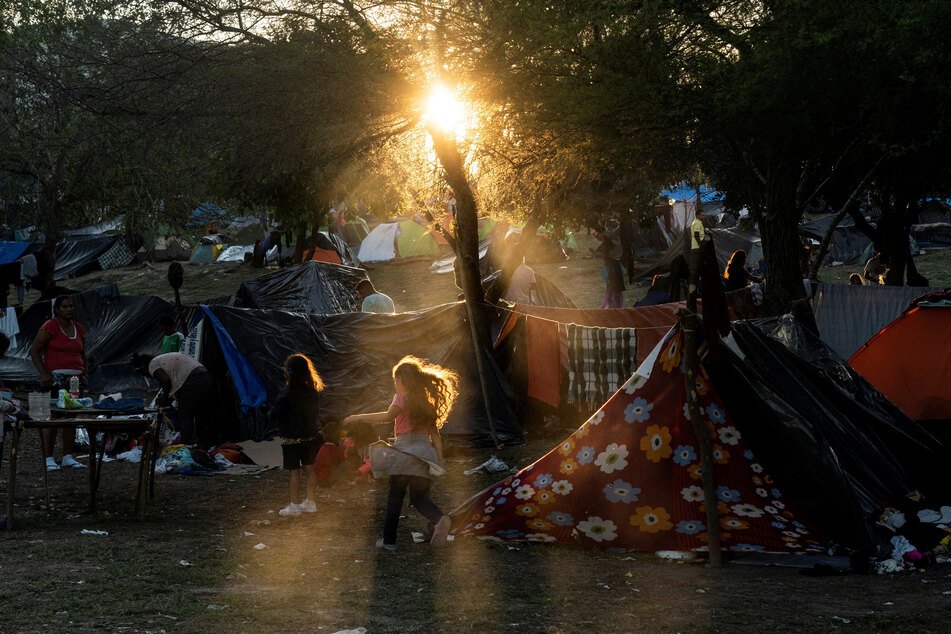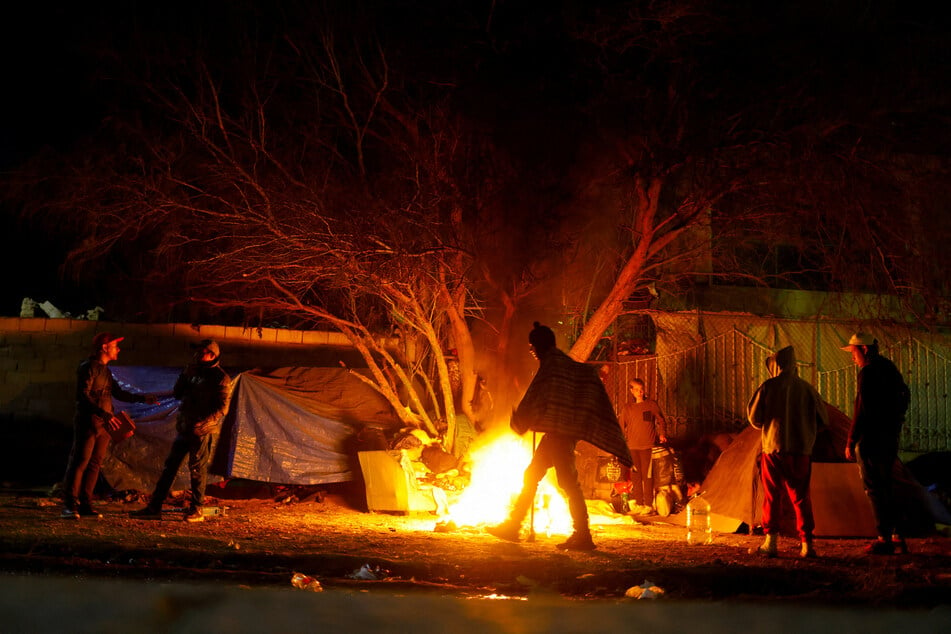Supreme Court issues new order on Title 42 border policy
Washington DC - A divided Supreme Court on Tuesday issued an order that keeps in place the pandemic-related border policy known as Title 42, allowing border agents to continue turning away people seeking asylum for at least another few months.

The court agreed to decide whether Republican-led states can intervene in a lawsuit and defend the policy, which has allowed border agents to swiftly turn back migrants without considering their asylum claims since March 2020.
The justices plan to hear oral arguments in February, which would put the court on track to issue an opinion on that question this term, which concludes at the end of June.
The Supreme Court made clear in the order that it would not be considering the merits of a November ruling by a Washington federal judge, who found that the border policy was issued illegally and ordered it terminated by December 21.
If the justices decide to let the states join the case, it could tee up further battles in the lower courts over the legality of the border rule.
The order notes that it pauses the lower court ruling, but "does not prevent the federal government from taking any action with respect to that policy."
Biden administration urges comprehensive border reform

White House Press Secretary Karine Jean-Pierre said in a statement that the Biden administration "will, of course, comply with the order and prepare for the Court's review."
She added that the administration is "advancing our preparations to manage the border in a secure, orderly, and humane way when Title 42 eventually lifts and will continue expanding legal pathways for immigration." Jean-Pierre also called on Congress to pass comprehensive immigration legislation.
"Today's order gives Republicans in Congress plenty of time to move past political finger-pointing and join their Democratic colleagues in solving the challenge at our border by passing the comprehensive reform measures and delivering the additional funds for border security that President Biden has requested," she said.
The high court had temporarily halted the lower court ruling just two days before the scheduled termination date to give the justices time to consider the states' request.
Decision "will mean more suffering for desperate asylum seekers"

Justices Neil Gorsuch, Ketanji Brown Jackson, Sonia Sotomayor, and Elena Kagan indicated they would have rejected the states' request. Gorsuch, in a dissent joined by Jackson, said the majority's decision to allow the border expulsion policy to continue was "unwise."
Gorsuch noted that the states do not contend that the Title 42 rule is needed to address the public health emergency – the policy's initial stated intention – but rather claim the policy is necessary to secure the border.
"But the current border crisis is not a Covid crisis," Gorsuch wrote. "And courts should not be in the business of perpetuating administrative edicts designed for one emergency only because elected officials have failed to address a different emergency. We are a court of law, not policymakers of last resort."
A group of more than a dozen Republican attorneys general had requested to join the litigation and block the border policy from ending. The states, which were not originally involved in the litigation, asked to intervene after becoming dissatisfied with the Biden administration's defense of the Title 42 policy.
The Biden administration had said it would appeal the lower court ruling and continue to defend the government's legal authority to enforce the Title 42 rule. But the government has also indicated it does not currently want to implement the border expulsion policy and said it would postpone appellate proceedings while it develops new border policies.
Both the American Civil Liberties Union (ACLU), which had sued the government over the Title 42 rule nearly two years ago, and the Biden administration had opposed the states' bid to join the case.
Lee Gelernt of the ACLU, a lead attorney in the case, said by email Tuesday that maintaining the Title 42 policy "will mean more suffering for desperate asylum seekers," but added that "hopefully this proves only to be a temporary set back in the court challenge."
Title 42 criticized by human rights advocates
The justices' decision Tuesday further extends a border policy that has been panned by human rights advocates for restricting asylum access at the border. Border agents have logged more than two million Title 42 expulsions of migrants since the policy began, according to government data.
With the harsh weather conditions caused by winter storm Elliott, there are also concerns over the safety of those stuck at the border.
The Biden administration had been preparing for months to reinstate full asylum processing at the border in anticipation of the eventual end of the border expulsion policy.
In documents released earlier this month, the Department of Homeland Security said it has surged resources to the border, including by bringing on additional personnel and building soft-sided processing facilities, to prepare for a potential migration influx once the restrictions are lifted.
Cover photo: REUTERS

